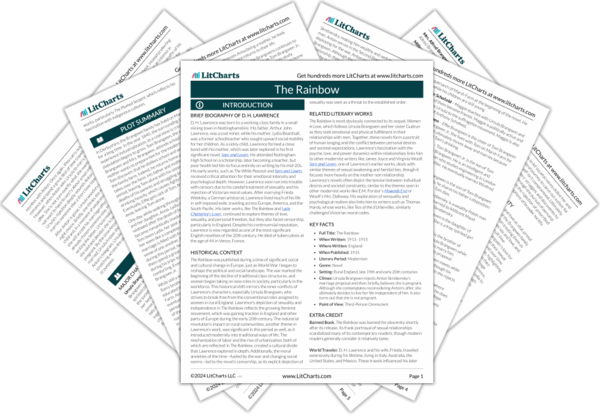Anna’s discomfort at the cattle market shows that she does not know how to navigate social environments filled with adult men. Unlike the fussy landladies, the men at the market intimidate Anna; their world is far more visceral, as the market itself is completely overwhelming. Still, on the whole, she finds the experience exhilarating, as she immediately wants to return. Anna’s excitement at spending time in male spaces suggests that she will grow up to push against the expectations normally placed upon girls and women.
